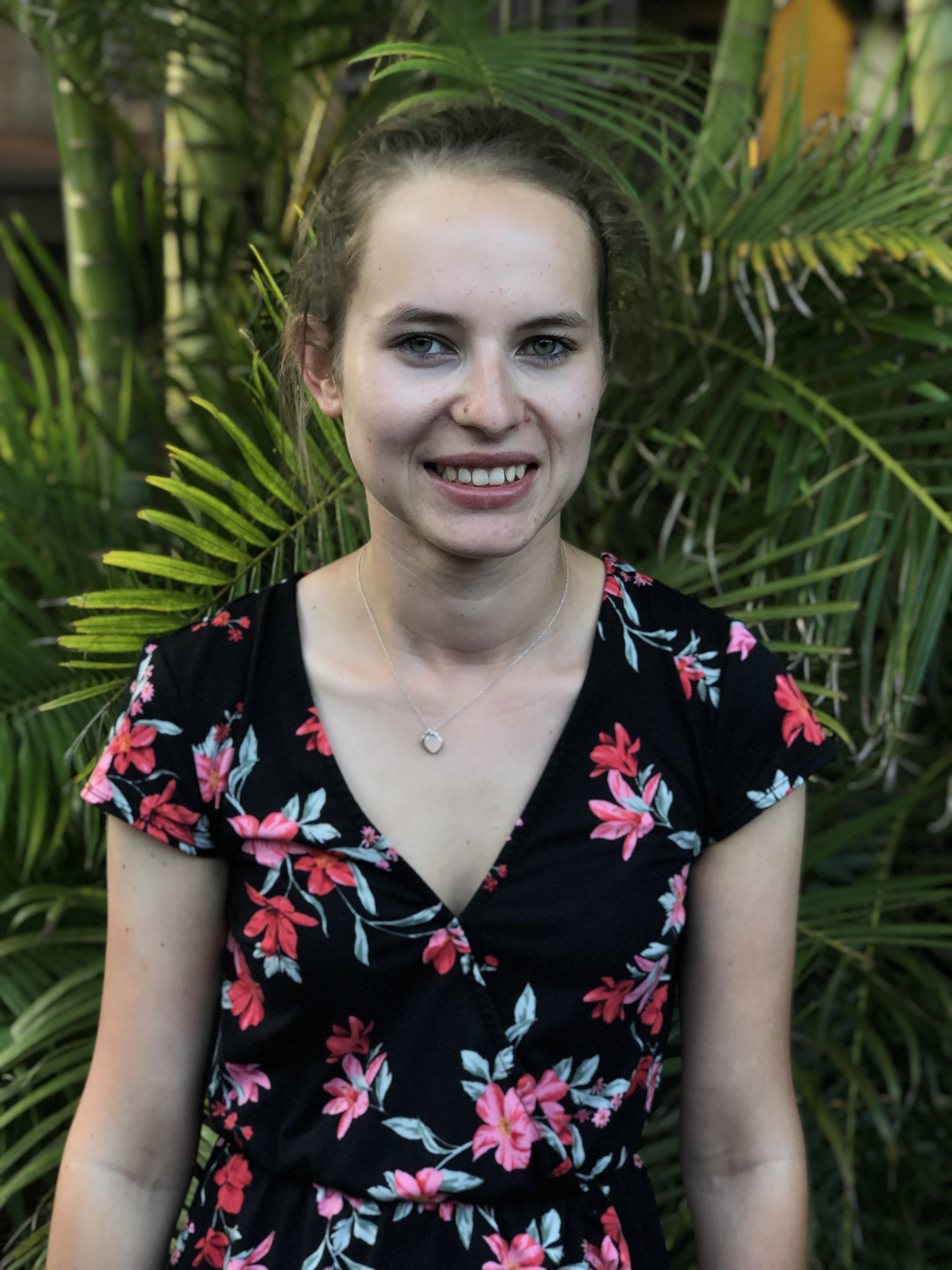PhD Spotlight Competition 2022
University of York
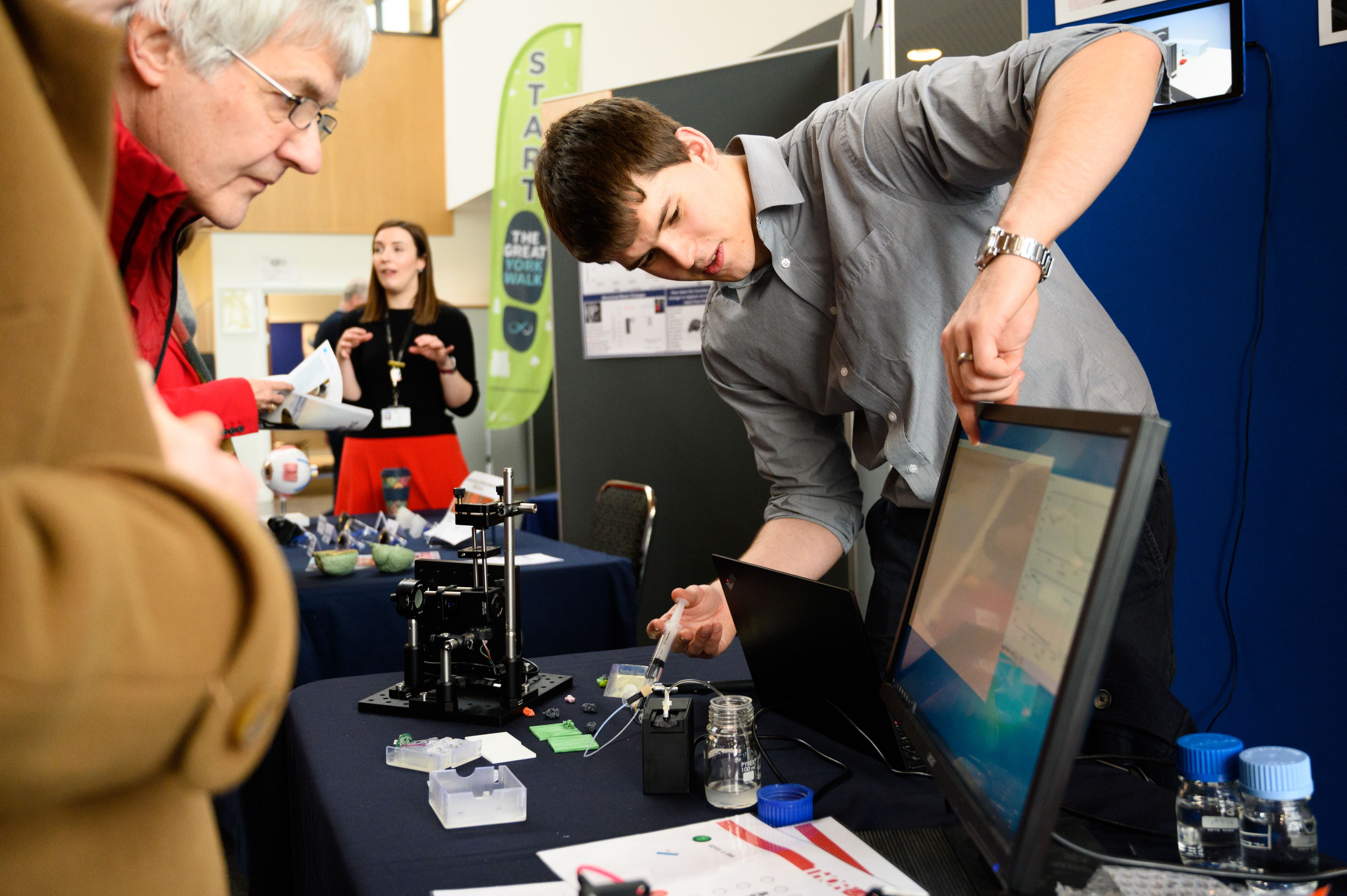
What is the PhD Spotlight Competition?
The ‘PhD Spotlight’ competition is an opportunity for Postgraduate Researchers from all disciplines to demonstrate the value of their research to non-specialist audiences.
Part of a series of public engagement events hosted by the York Graduate Research School, the competition aligns with the University’s seven research themes.
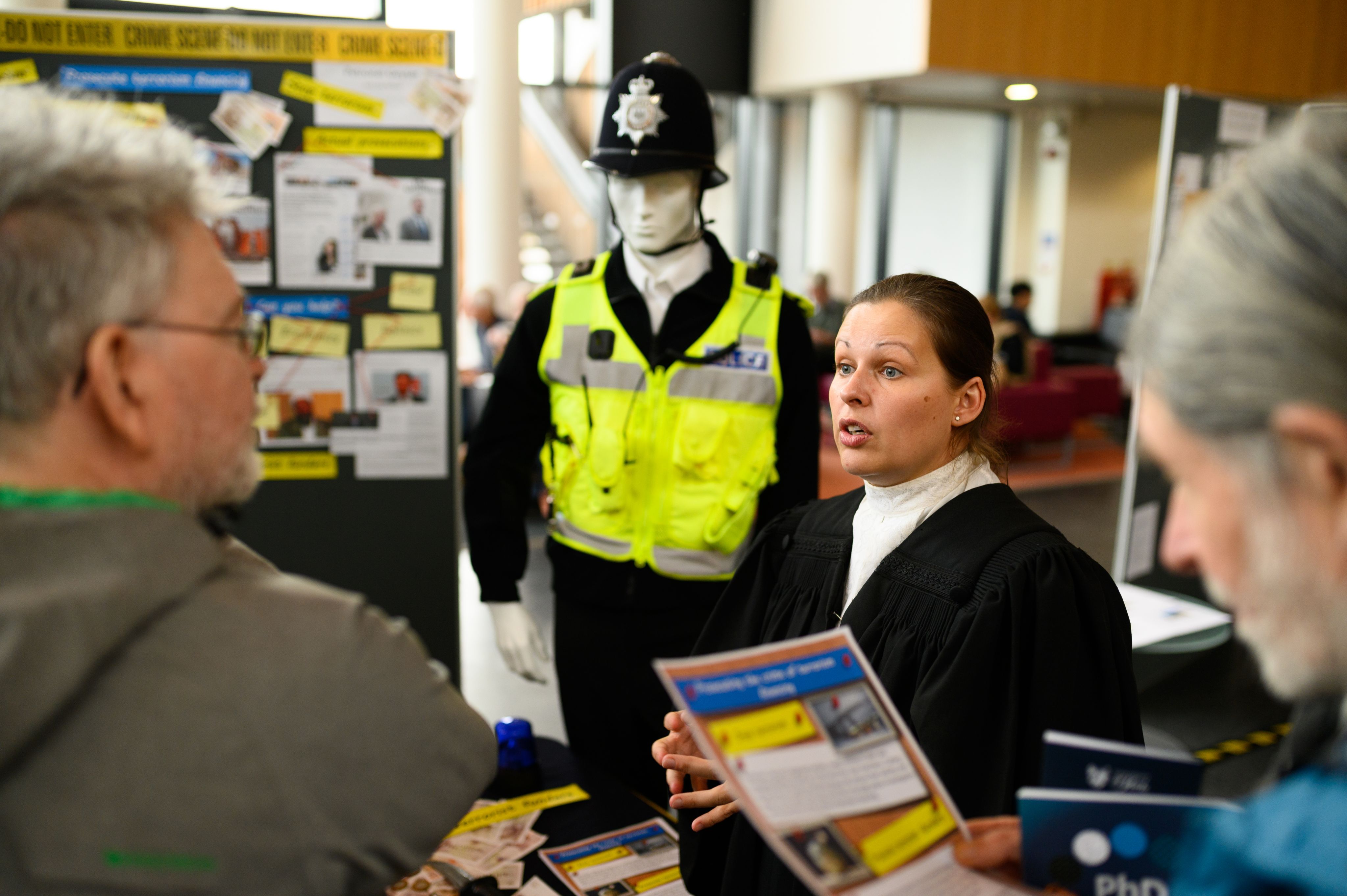
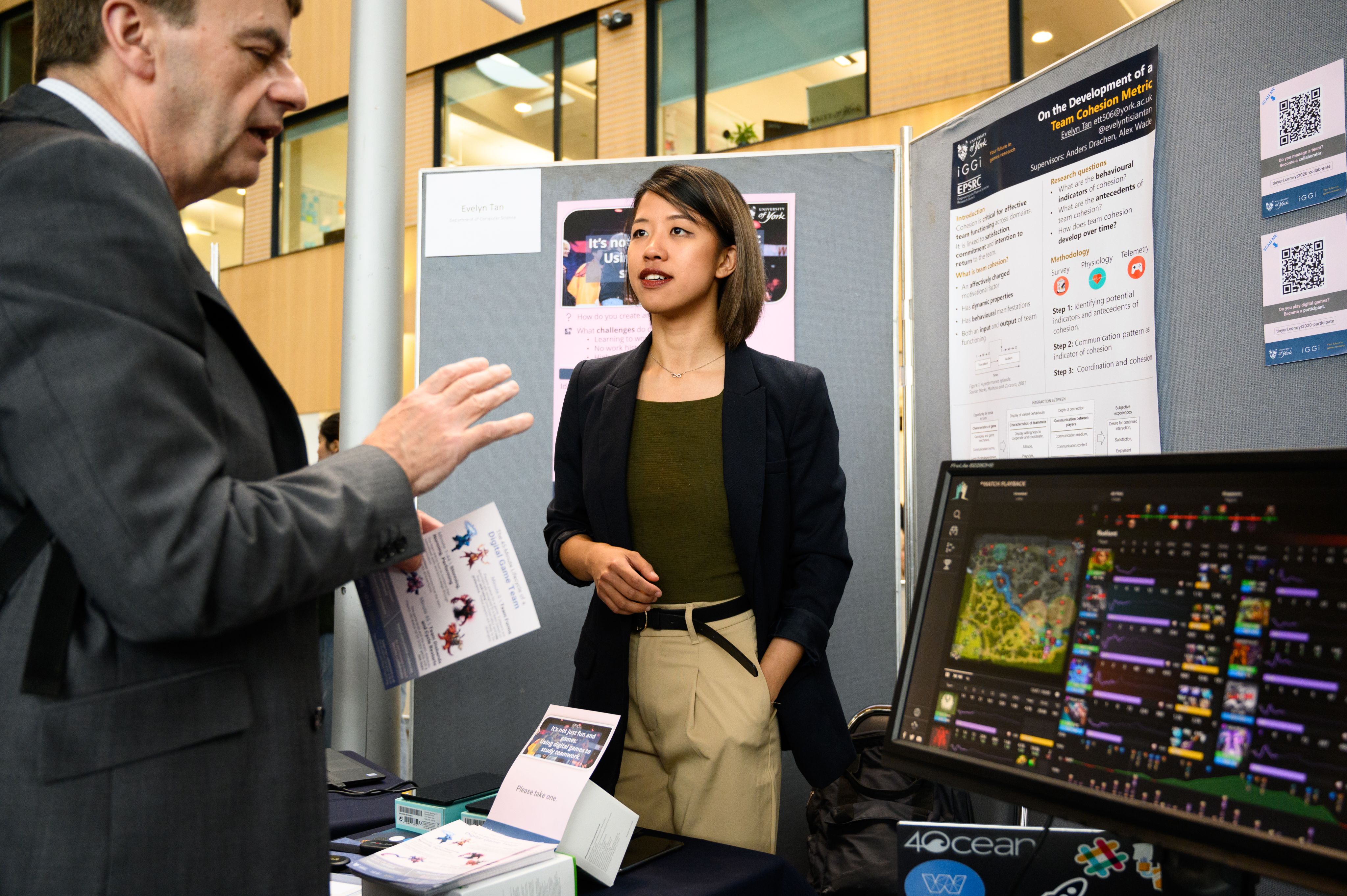
Many thanks to everyone who took the time to look at the finalists' posters and voted for our People's choice award.
Our winner was Sonam Sidhu, with their poster: Structure and composition of an intercellular channel in sporulatin Bacillus subtilis.
Share your thoughts and join the conversation online with #YorkResearch and #YorkTalks.
Our 2022 Judging Panel
In addition to our People's Choice Award, the work of our PhD Spotlight Finalists will also be reviewed by our panel, for first, second and third place prizes.
The panel consists of Professor Kate Arnold (Dean of the York Graduate Research School), and our seven Research Champions - senior leaders in their academic disciplines who lead and catalyse research collaborations here at York.
Judging Criteria and Prizes
2022 Prizes
1st place: £100 Amazon voucher -
Daisy McManaman: "A Girl Resembles a Bunny": A Feminist Re-Analysis of Representations of Women in Playboy
2nd place: £75 Amazon voucher -
Manli Zhu: Crafting Insta-Glammed Eyecandies: The Lived Experiences of Foodstagramming
3rd place: £50 Amazon voucher -
Jess Gibson: The Representation of Disability in Disney Animated Films: Using Models of Disability as Pedagogical Tools for Analysis
People's choice: £30 Amazon voucher -
Sonam Sidhu: Structure and Composition of an Intercelluar Channel in Sporulatin Bacillus subtilis
Judging for these prizes is as follows:
"A PhD Spotlight poster should:
- offer a clear 'taster encounter' with a student's research project for a non-specialist audience
- have quickly appreciable dramatic visual impact
- make clear the interdisciplinary nature of the research
- clearly identify how their research aligns to one of the University's seven research themes"
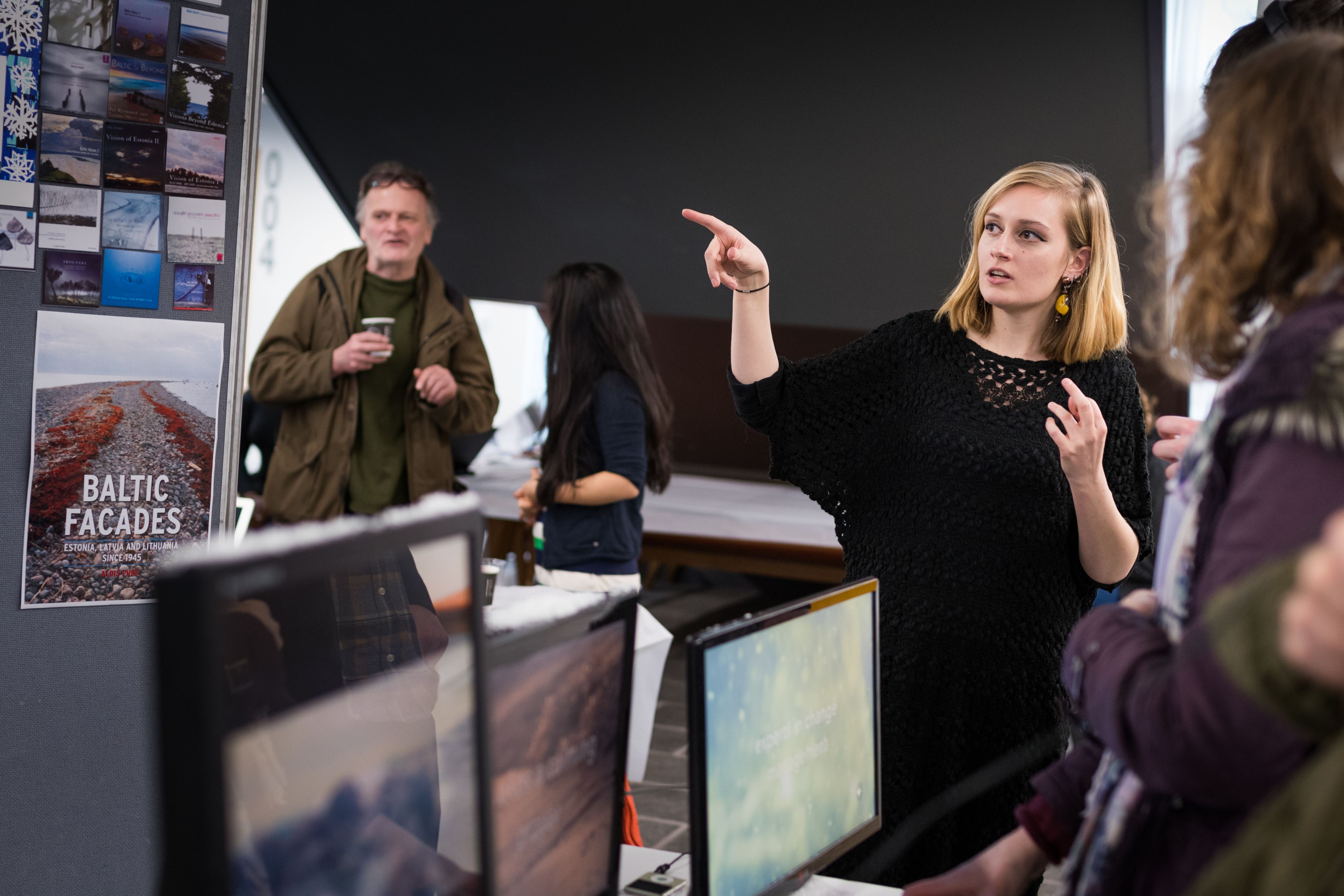
Navigating the gallery
To show the breadth and range of our Finalists' themes, we have put together a media gallery of their posters below.
Click on each poster to bring it up in full view on your screen, and scroll down to read each finalists' biography and background, or download a pdf version for closer inspection.
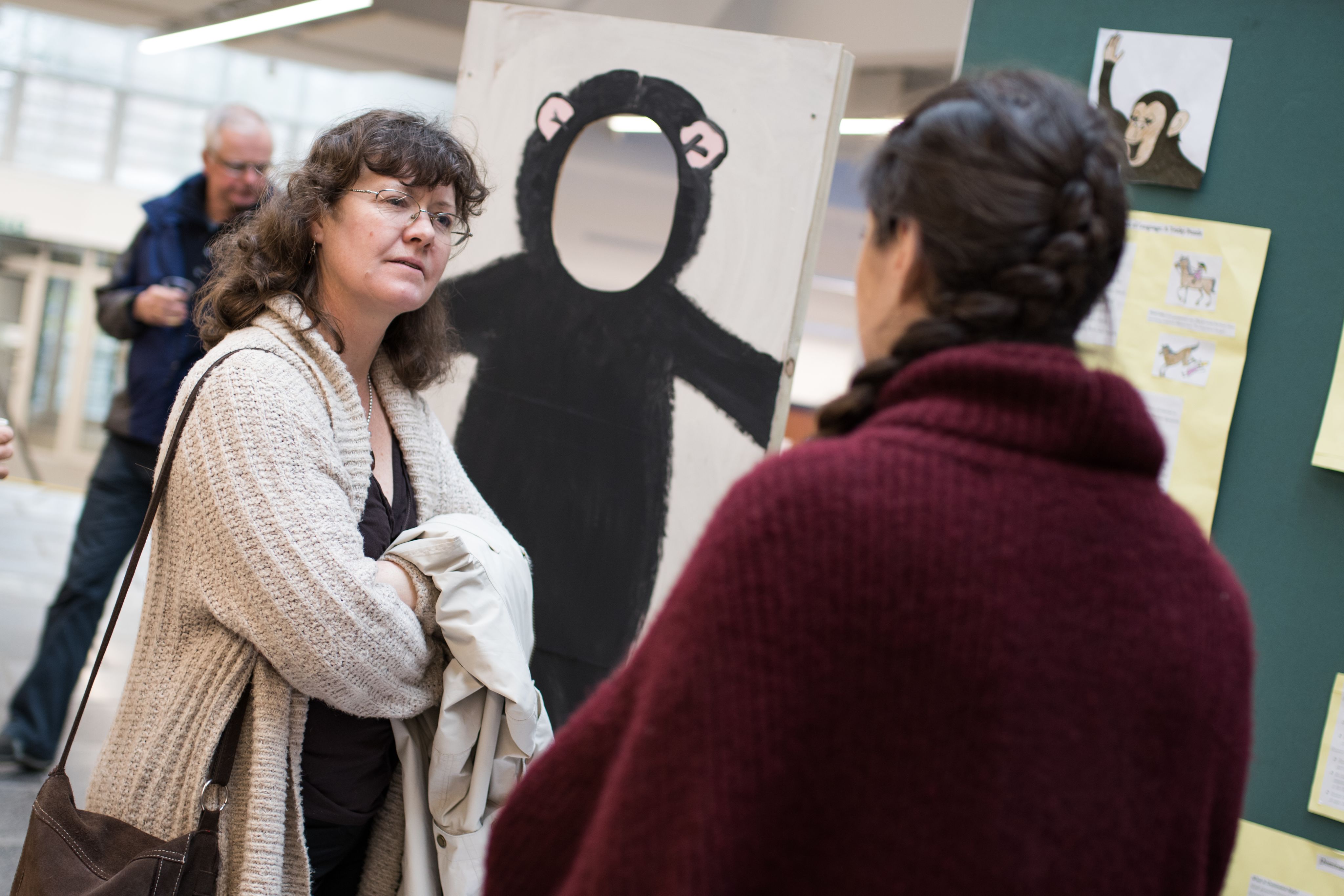
The 2022 Finalists
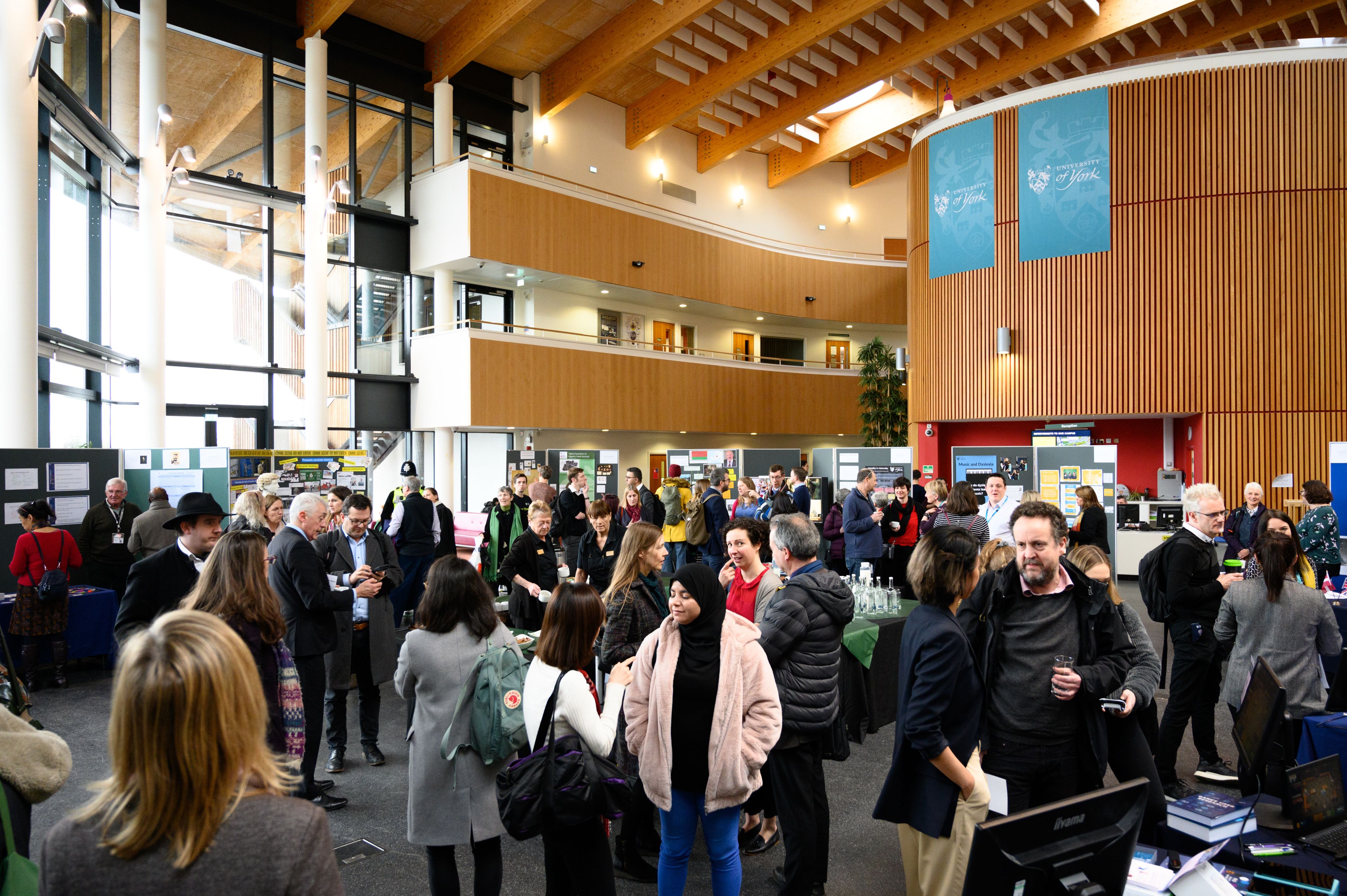
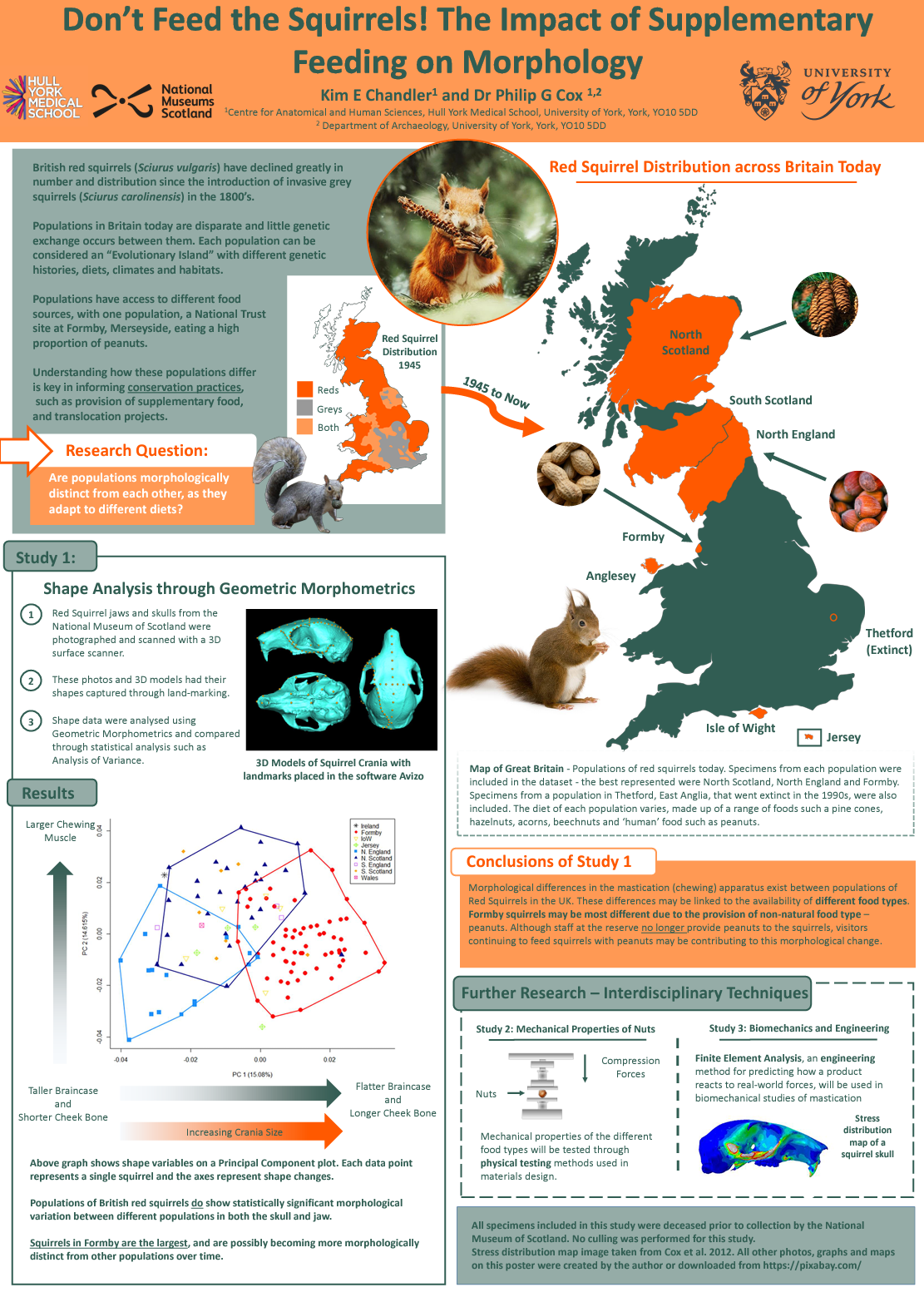
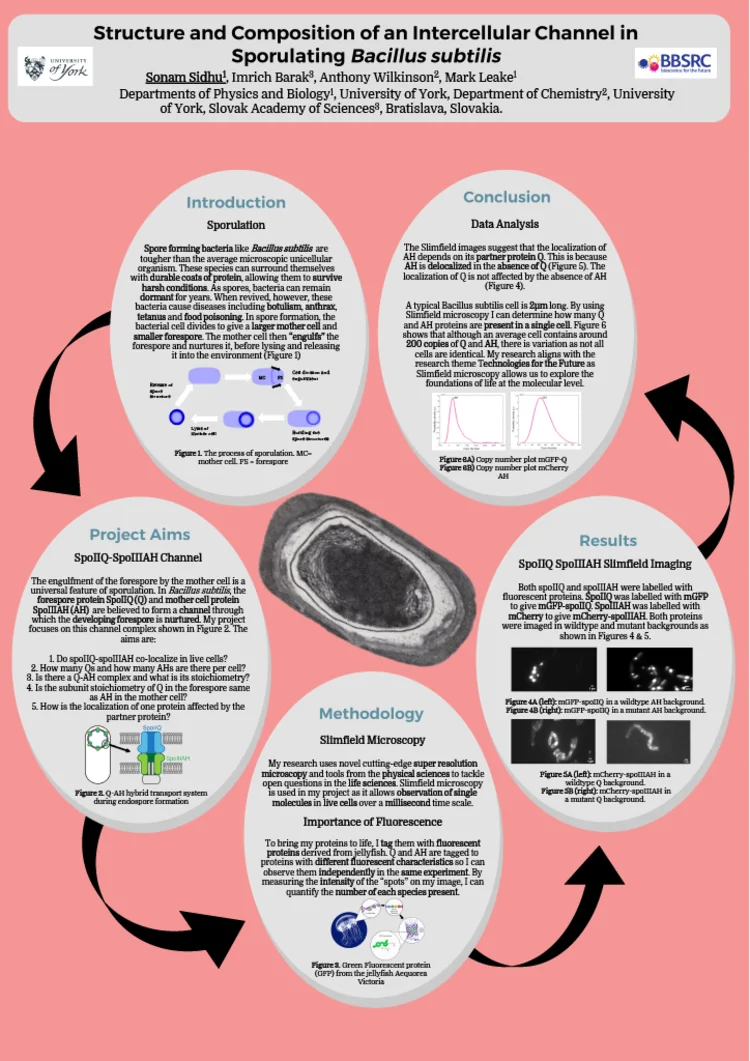
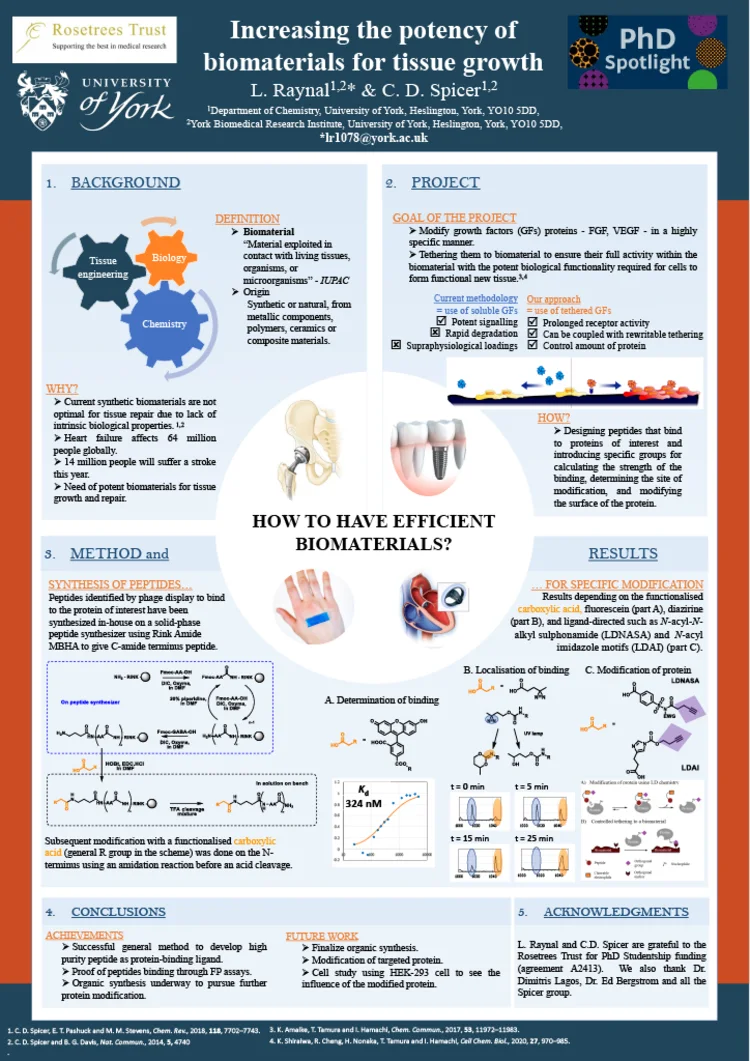
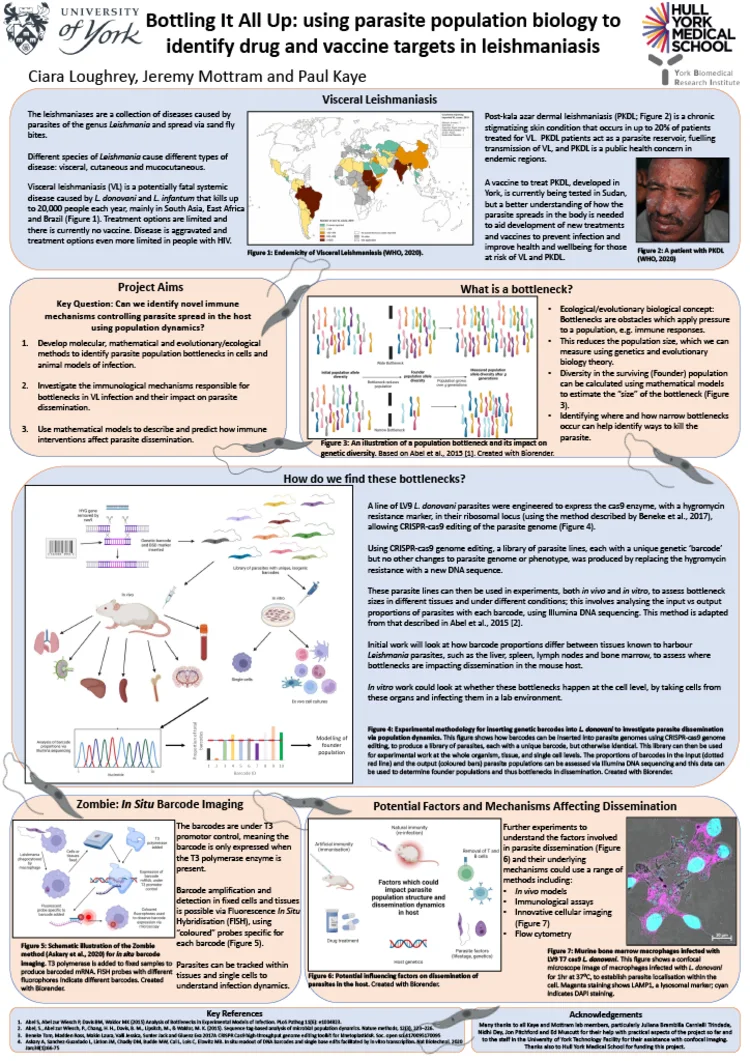
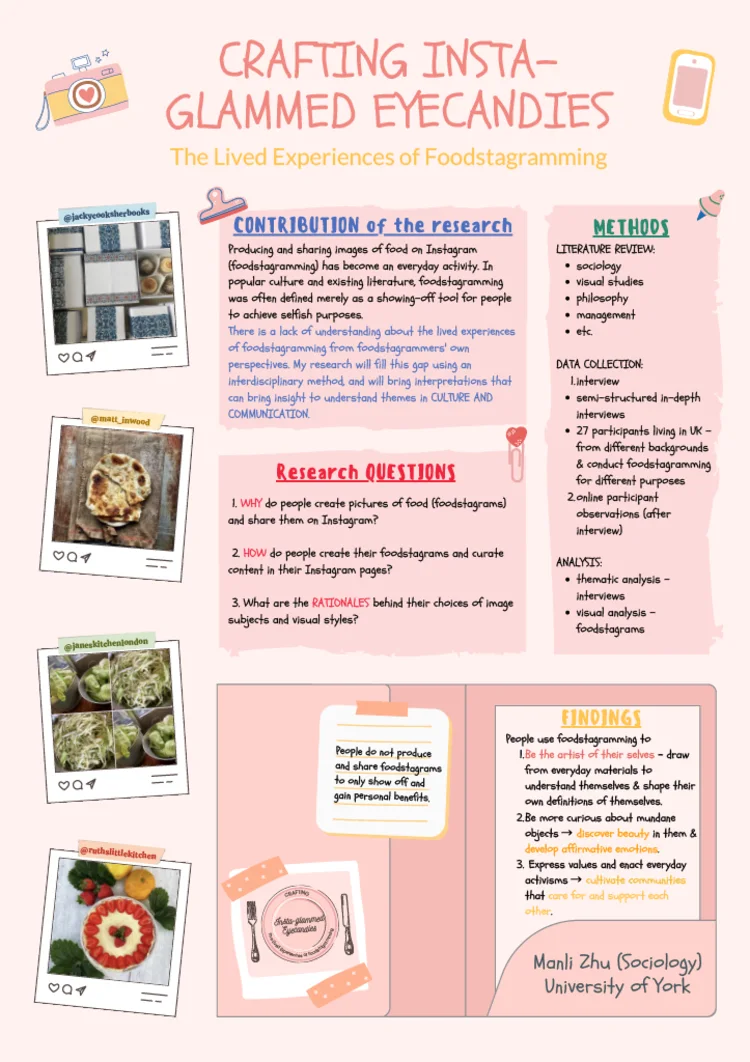
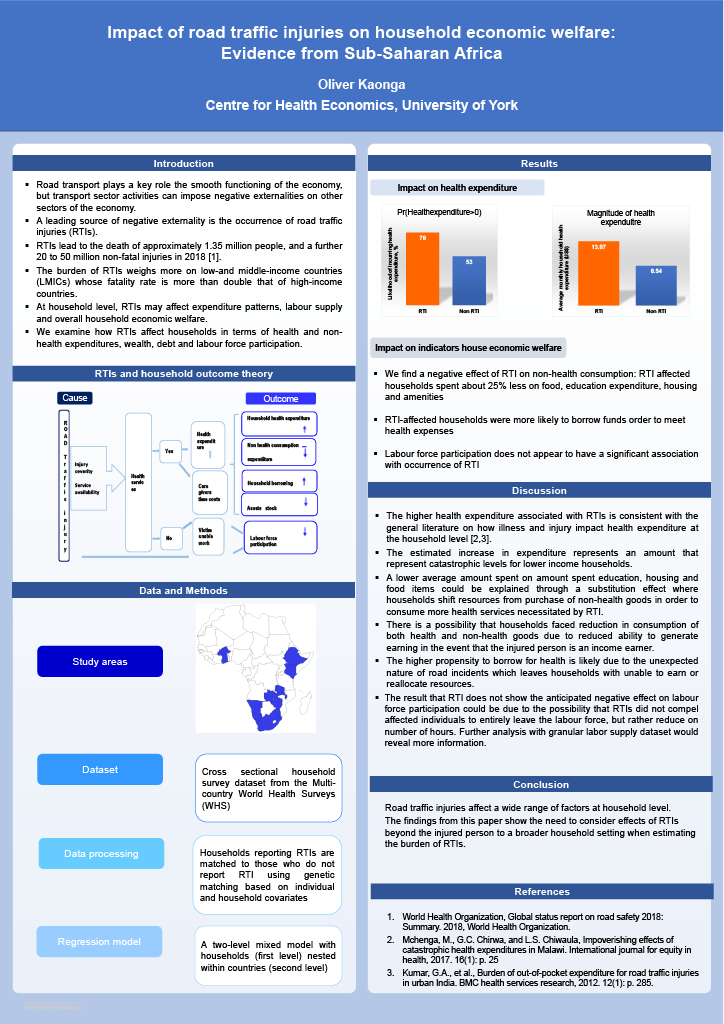

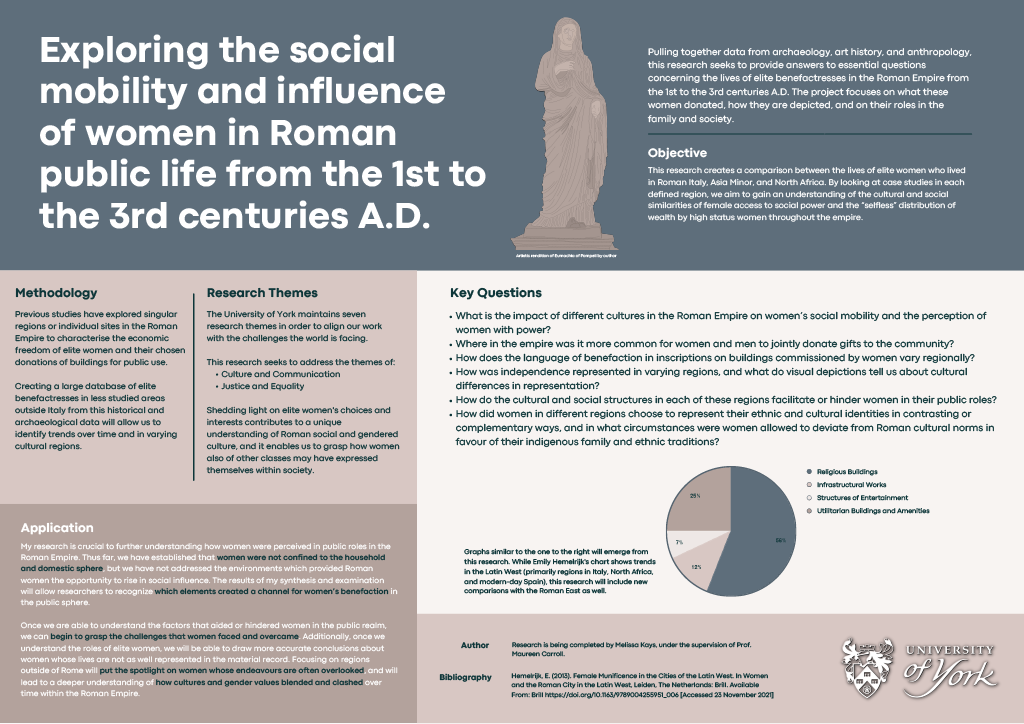
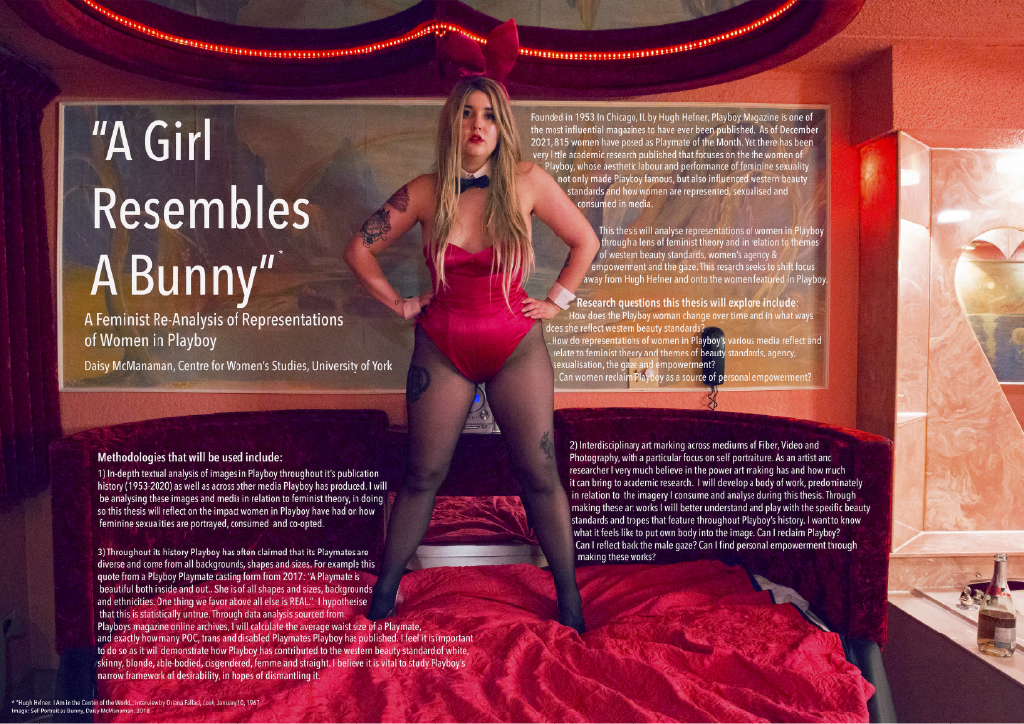
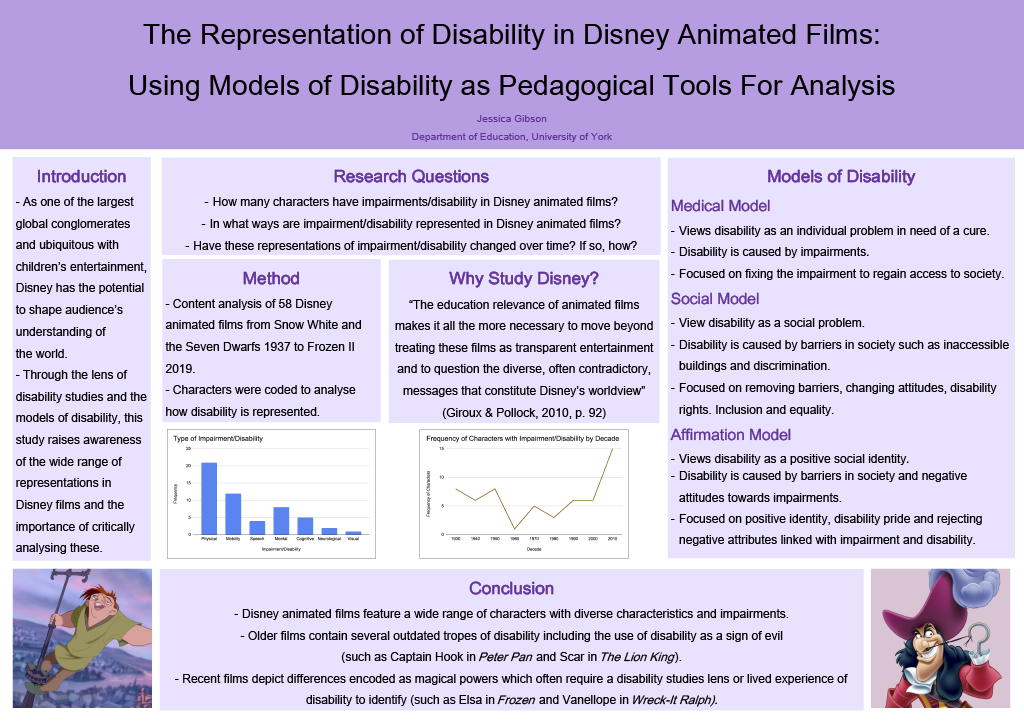

Kim Chandler, HYMS - Don't Feed the Squirrels! The Impact of Supplementary Feeding on Morphology
Kim Chandler, HYMS - Don't Feed the Squirrels! The Impact of Supplementary Feeding on Morphology

Sonam Sidhu, Biology & Physics - Structure and Composition of an Intercellular Channel in Sporulatin Bacillus subtilis
Sonam Sidhu, Biology & Physics - Structure and Composition of an Intercellular Channel in Sporulatin Bacillus subtilis

Laetitia Raynal, Chemistry & York Biomedical Research Institute - Increasing the potency of biomaterials for tissue growth
Laetitia Raynal, Chemistry & York Biomedical Research Institute - Increasing the potency of biomaterials for tissue growth

Ciara Loughrey, HYMS & York Biomedical Research Institute - Bottling It All Up: using parasite population biology to identify drug and vaccine targets in leishmaniasis
Ciara Loughrey, HYMS & York Biomedical Research Institute - Bottling It All Up: using parasite population biology to identify drug and vaccine targets in leishmaniasis

Manli Zhu, Sociology - Crafting Insta-Glammed Eyecandies: The Lived Experiences of Foodstagramming
Manli Zhu, Sociology - Crafting Insta-Glammed Eyecandies: The Lived Experiences of Foodstagramming

Oliver Kaonga, Centre for Health Economics - Impact of road traffic injuries on household economic welfare: Evidence from Sub-Saharan Africa
Oliver Kaonga, Centre for Health Economics - Impact of road traffic injuries on household economic welfare: Evidence from Sub-Saharan Africa

Brendan Devlin-Hill, Computer Science - Using Robots to Maintain the Next Generation of Nuclear Fusion Reactors
Brendan Devlin-Hill, Computer Science - Using Robots to Maintain the Next Generation of Nuclear Fusion Reactors

Melissa Kays, Archaeology - Exploring the social mobility and influence of women in Roman public life from the 1st to the 3rd centuries A.D.
Melissa Kays, Archaeology - Exploring the social mobility and influence of women in Roman public life from the 1st to the 3rd centuries A.D.

Daisy McManaman, Centre for Women's Studies - "A Girl Resembles a Bunny" A Feminist Re-Analysis of Representations of Women in Playboy
Daisy McManaman, Centre for Women's Studies - "A Girl Resembles a Bunny" A Feminist Re-Analysis of Representations of Women in Playboy

Don't Feed the Squirrels! The Impact of Supplementary Feeding on Morphology
Kim Chandler, Hull York Medical School
I am a PhD student in the Centre for Anatomical and Human Sciences, University of York. My research focuses on British red squirrels (Sciurus vulgaris), studying their functional morphology and evolution, while incorporating interdisciplinary techniques of biomechanics and materials testing.
I am also a graduate teaching assistant at the Hull York Medical School where I assist in human anatomy labs for medical students. My background is in zoology (BA Trinity College Dublin) and palaeobiology (MSc University of Bristol). I have wider research interests in anatomy, functional morphology, evolution and using museum collections to discover more about the natural world!
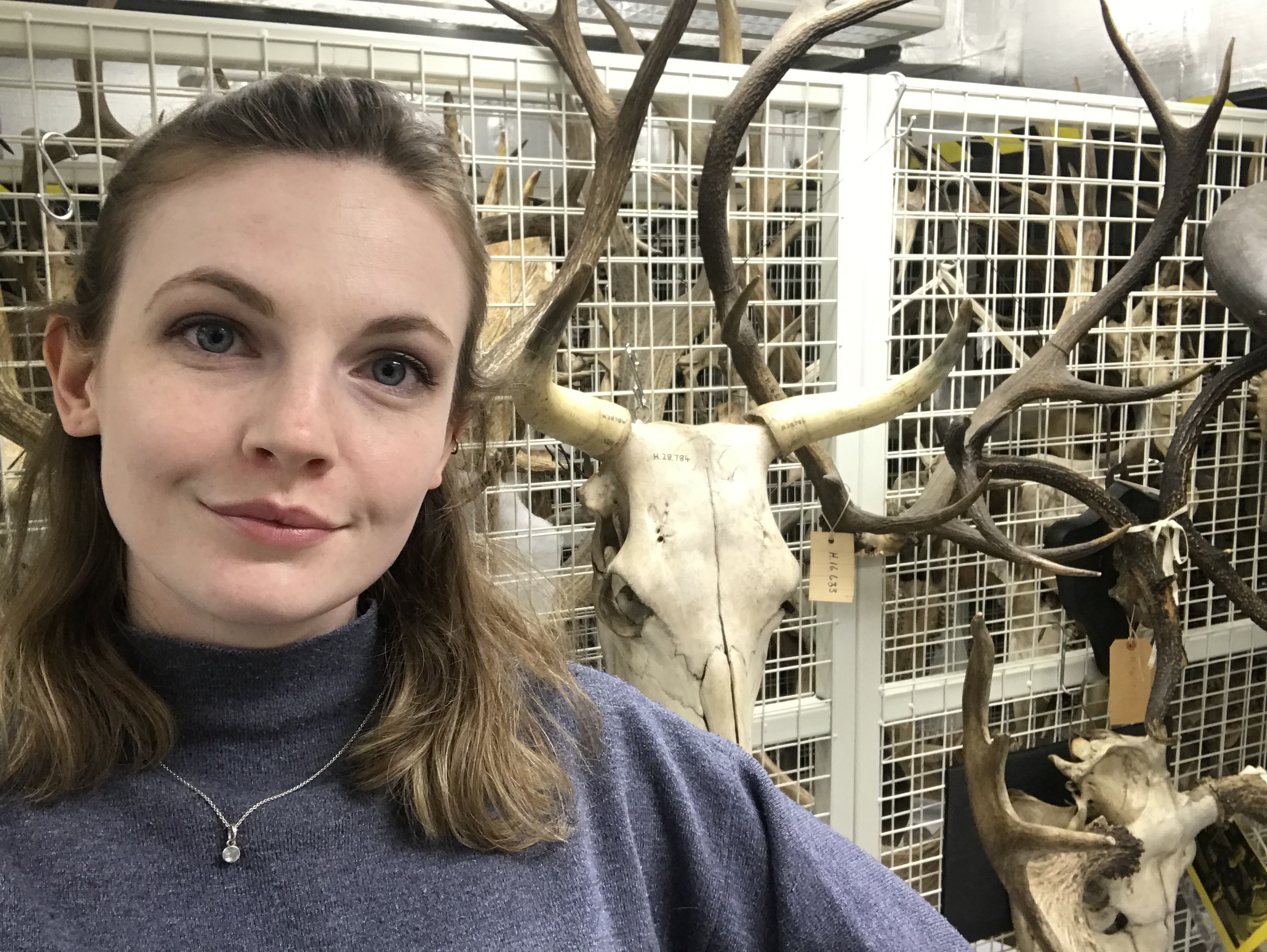

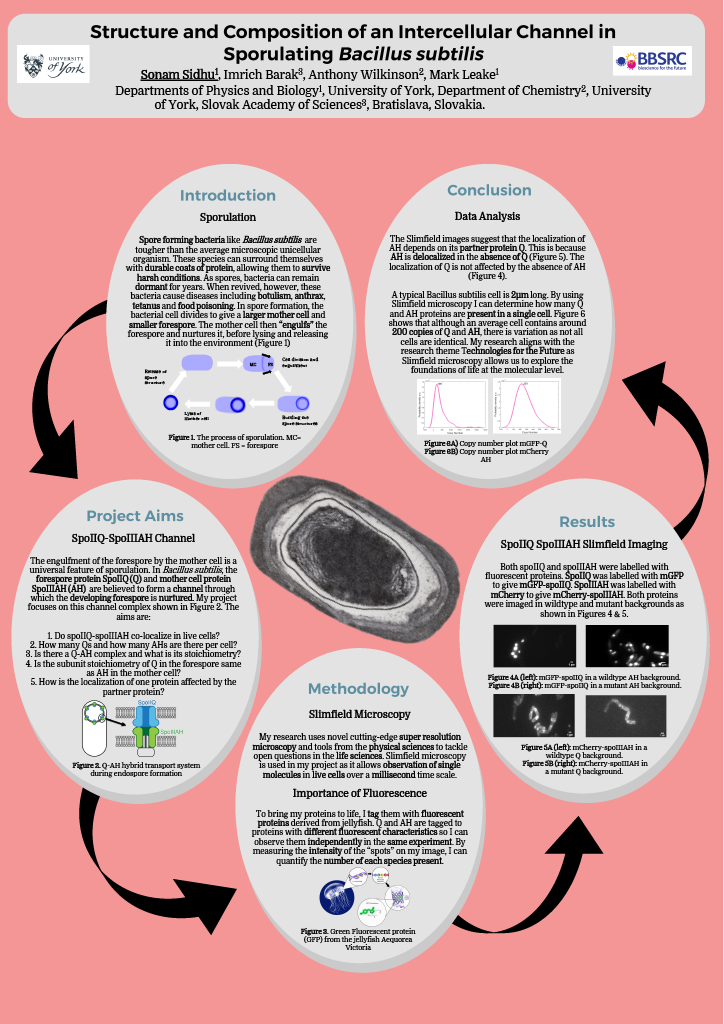
Structure and Composition of an Intercellular Channel in Sporulating Bacillus subtilis
Sonam Sidhu, Biology and Physics
I’m currently in the final year of my PhD in Biology, as part of the BBSRC White Rose DTP Partnership. I’m interested in using biophysical tools to understand biological problems. My project focuses on identifying the structure and composition of an intercellular channel in the sporulating, soil bacterium Bacillus subtilis. The stoichiometry of subunits in this channel is unknown and no in-vivo experiments have been performed to address the stoichiometry of this channel in living cells. Slimfield microscopy has been used to determine the stoichiometry of other complexes and will be used to address this problem.
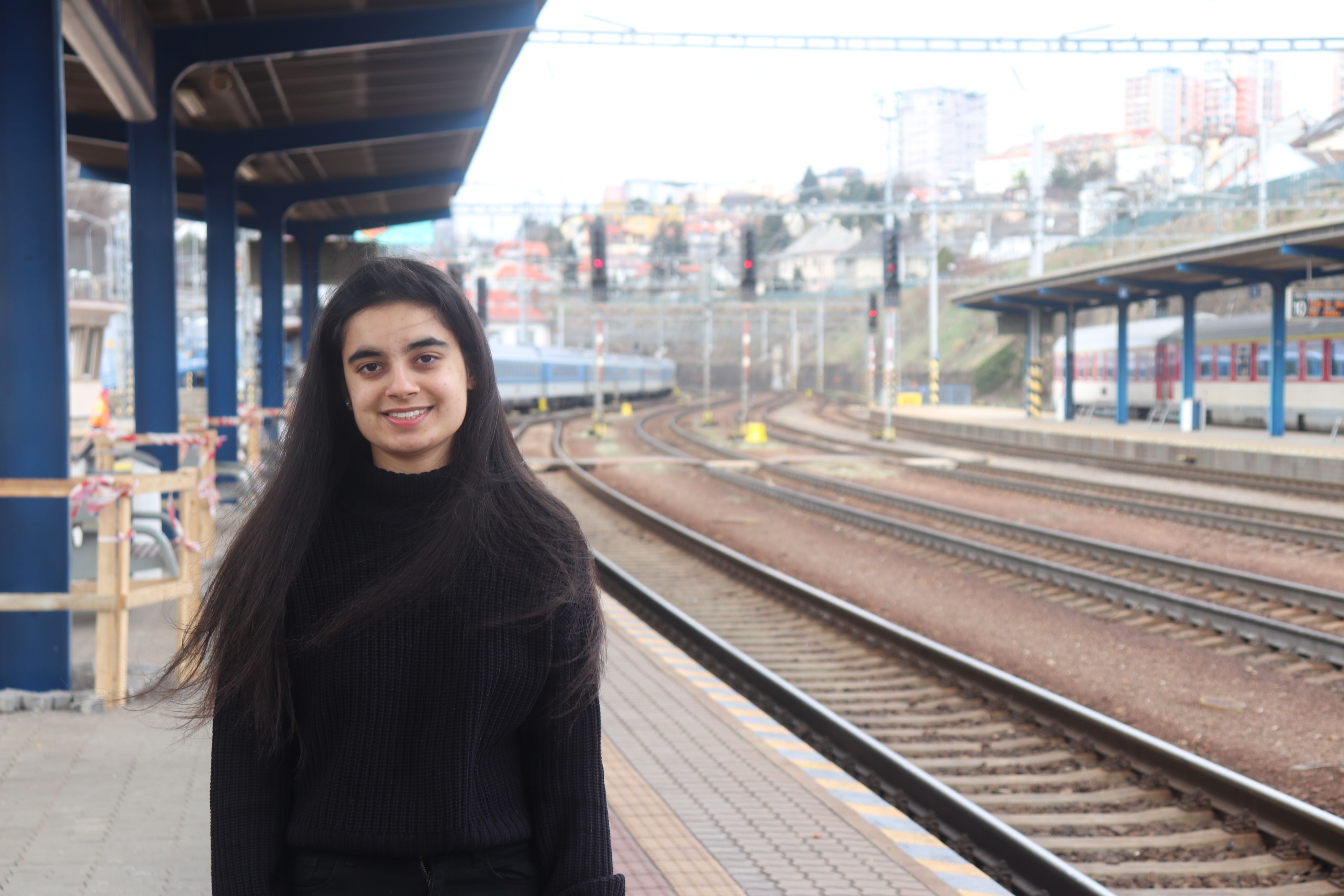
Increasing the potency of biomaterials for tissue growth
Laetitia Raynal, Chemistry and York Biomedical Research Institute
Laetitia Raynal studied Chemistry at the Ecole Nationale Supérieure de Chimie de Montpellier, with a major in Materials Chemistry. During her Master’s, she did an internship at DSM in the Netherlands and a one-year research placement at the University of Geelong in Australia, graduating with a Diplôme d’ingénieur Chimiste in 2019. The same year, she was awarded a Rosetrees Trust PhD Scholarship with Dr. Chris Spicer at the University of York, developing new approaches to enhance protein signalling. She wants to continue working between the interface of chemistry, biomaterials and biology to be able to impact the medical world beneficially.
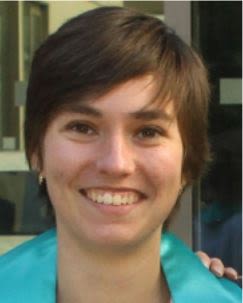
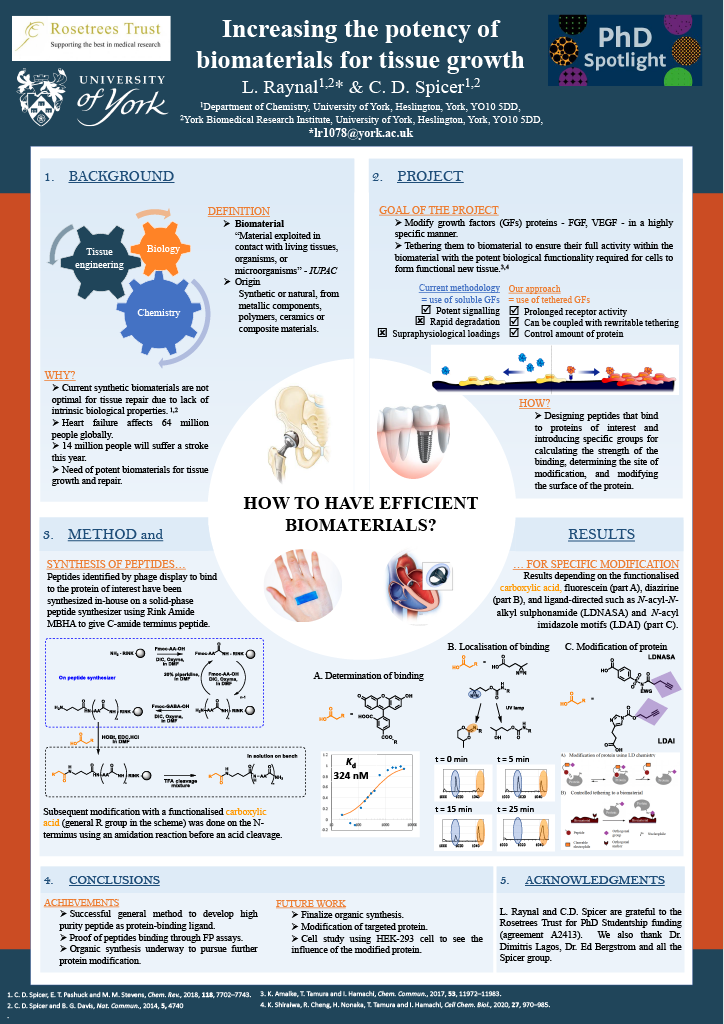
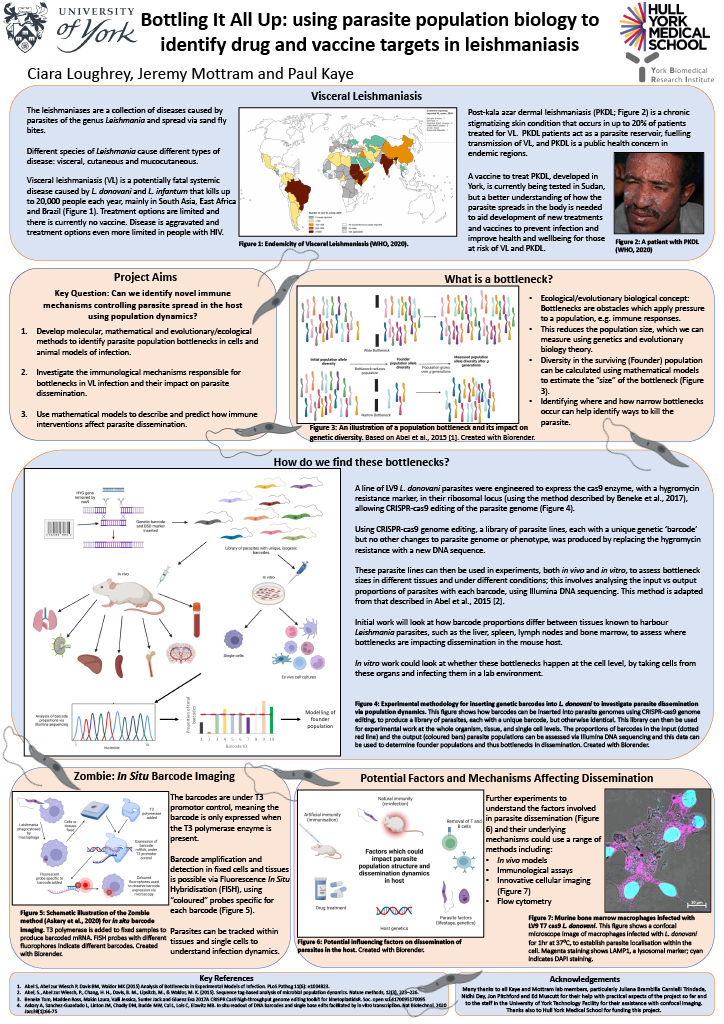
Bottling It All Up: Using parasite population biology to identify drug and vaccine targest in leishmaniasis
Ciara Loughrey, HYMS & York Biomedical Research Institute
Ciara is a second year PhD student in the labs of Jeremy Mottram and Paul Kaye. She is working on an interdisciplinary project aiming to understand host-parasite interactions and dissemination dynamics in the neglected tropical disease visceral leishmaniasis, which combines her interests in immunology, parasitology, mathematics and biophysics.
She completed her MSci degree in Molecular and Cellular Biology at the University of Glasgow, 2020, which included a placement working in Respiratory Immunology at GSK. Ciara is also involved in science outreach, having been involved in various projects including an innovative collaboration between Surge Street Theatre and the Wellcome Trust.
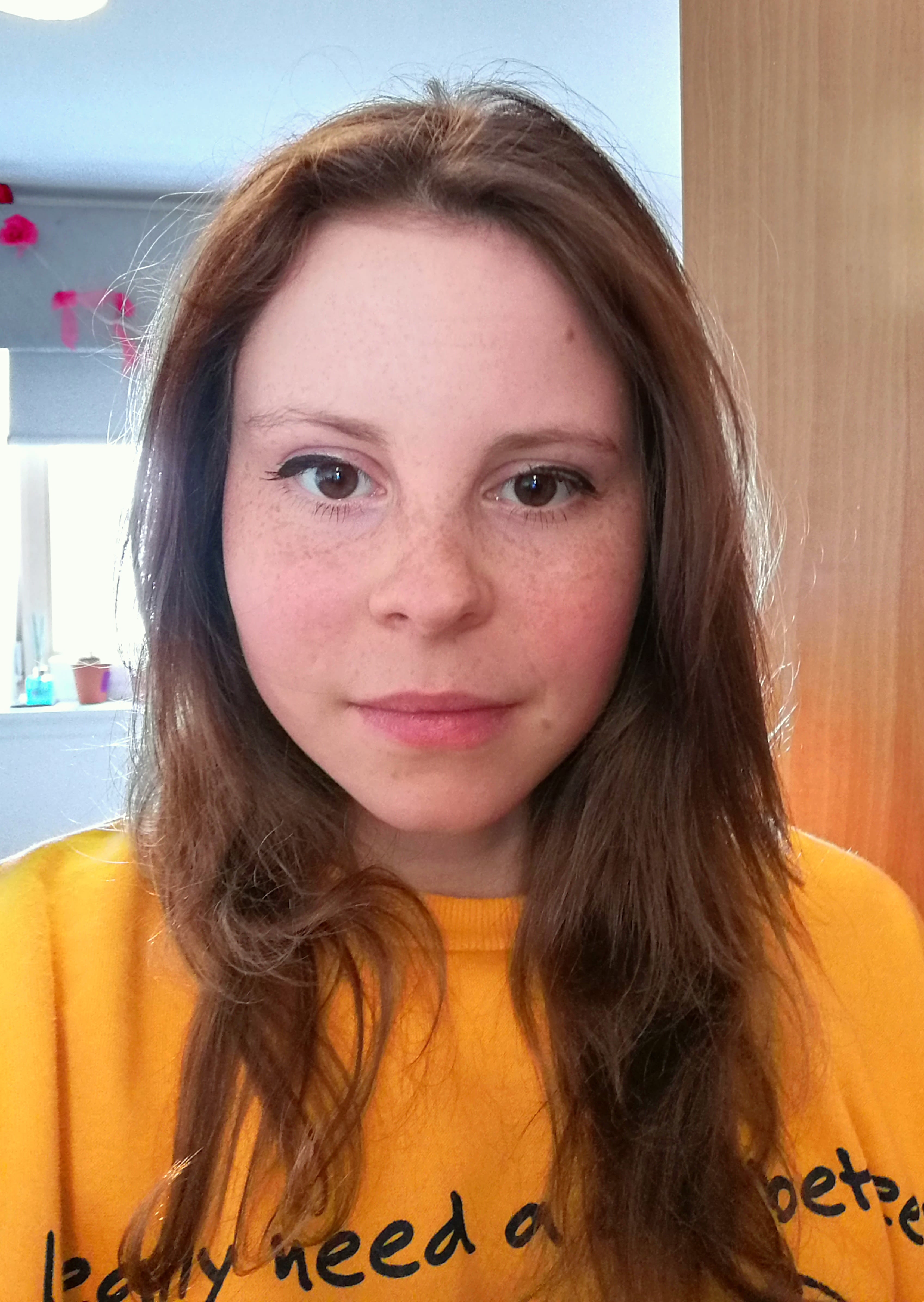
Crafting Insta-Glammed Eyecandies: The lived experiences of foodstagramming
Manli Zhu, Sociology
Manli Zhu is a PhD student from the Department of Sociology. She has academic backgrounds in economics and sociology. She also undertook training in psychology, history of art and design. Manli has conducted research and crafted publications in both textual and visual formats on topics related to food, visual culture and social media. In her PhD research, she continued to study these topics. Using the research, Manli hopes to provide insights on the practice of “foodstagramming” regarding why people produce and share food images on Instagram, as well as the approaches and rationales they use to produce their food images.
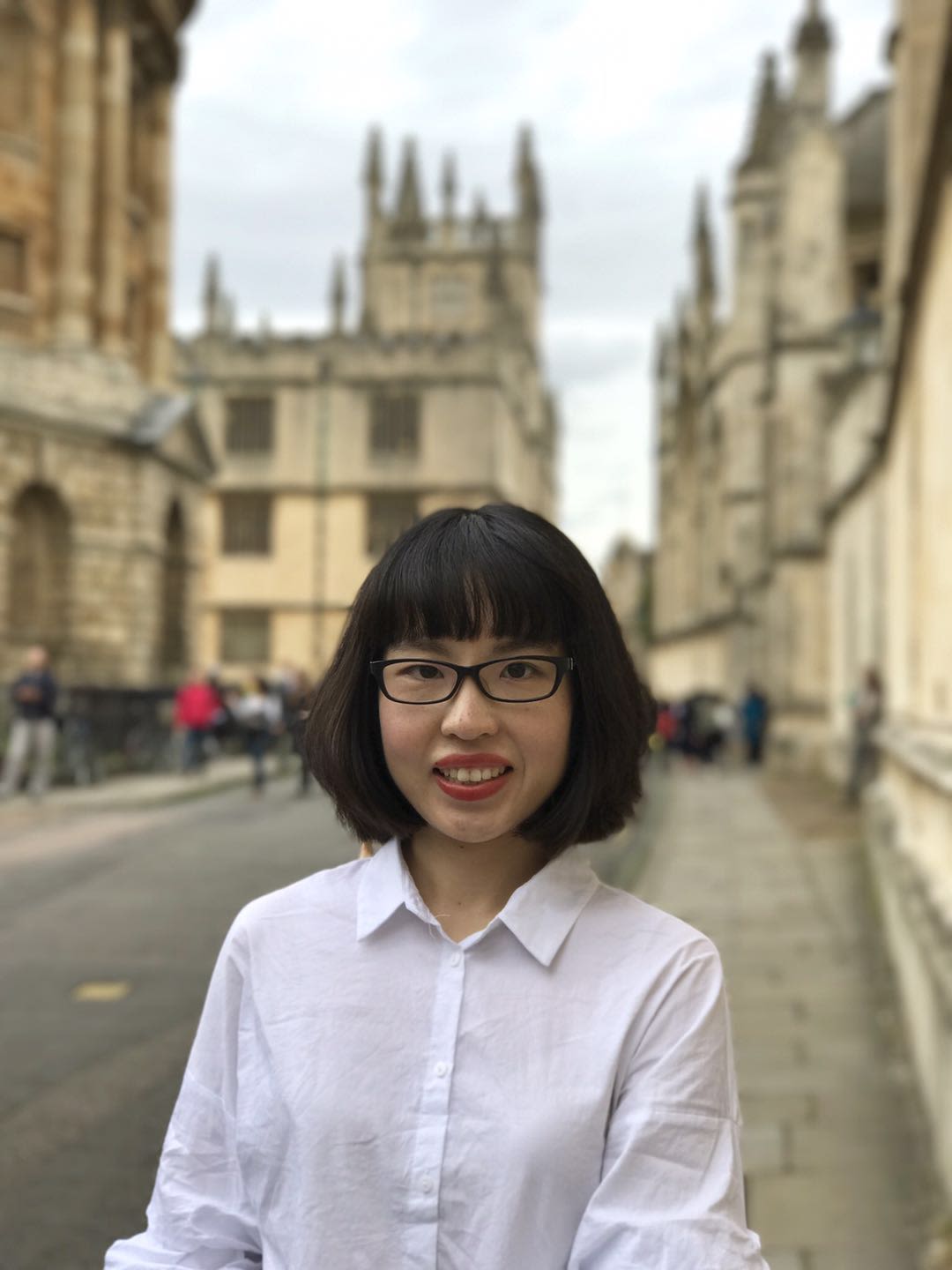
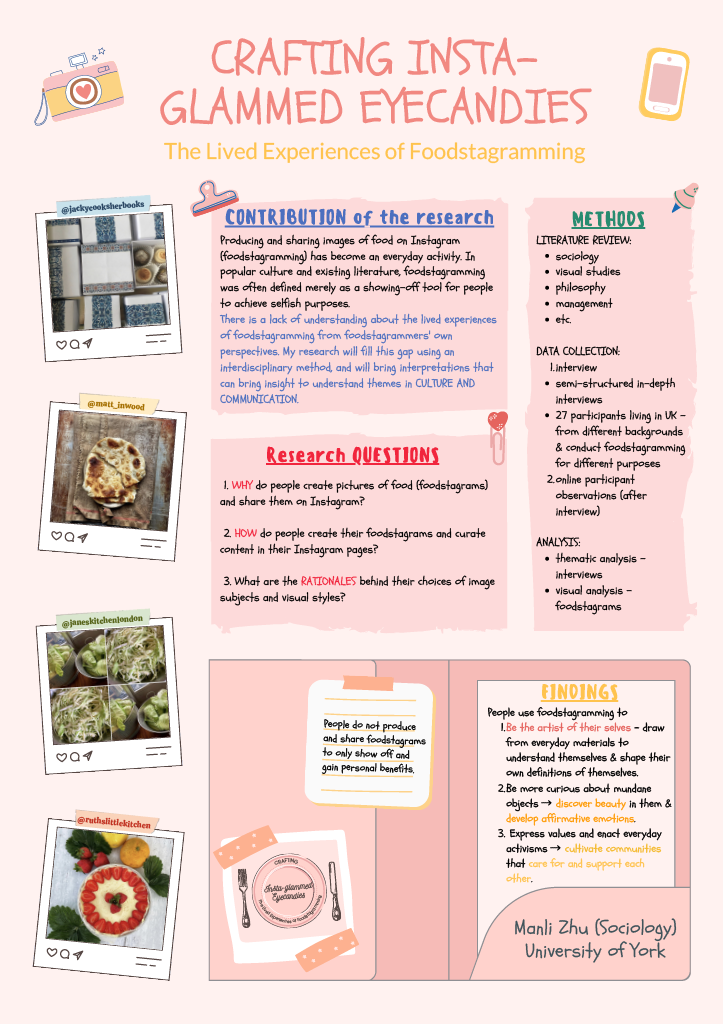

Impact of road traffic injuries on household economic welfare: Evidence from Sub-Saharan Africa
Oliver Kaonga, Centre for Health Economics
Oliver Kaonga is a third year PhD student in Economics based in the Centre for Health Economics (CHE). Having realized that health is influenced by determinants beyond the traditional conception of the health sector, his PhD research explores the impact of road transport externalities on health in low and middle-income countries. Using micro datasets, he investigates the effects of transport activities and policy on health outcomes and welfare at the household level.
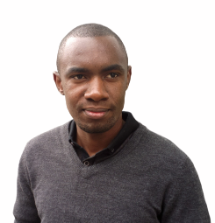
Using Robots to Maintain the Next Generation of Nuclear Fusion Reactors
Brendan Devlin-Hill, Computer Science
Originally from Belfast, I moved to London in 2016 to study a Physics MSci at UCL. During my studies, I took an internship at Tokamak Energy, where I discovered the amazing field of fusion research. After completing my MSci in 2019, my interest in fusion pulled me into the fields of Computer Science and Robotics when I joined University of York to start my PhD, entitled "Multi-Robot Systems for the Inspection of Nuclear Fusion Infrastructure". Although adapting to a new field was challenging, the research is fascinating and I'm looking forward to a career in fusion and robotics.
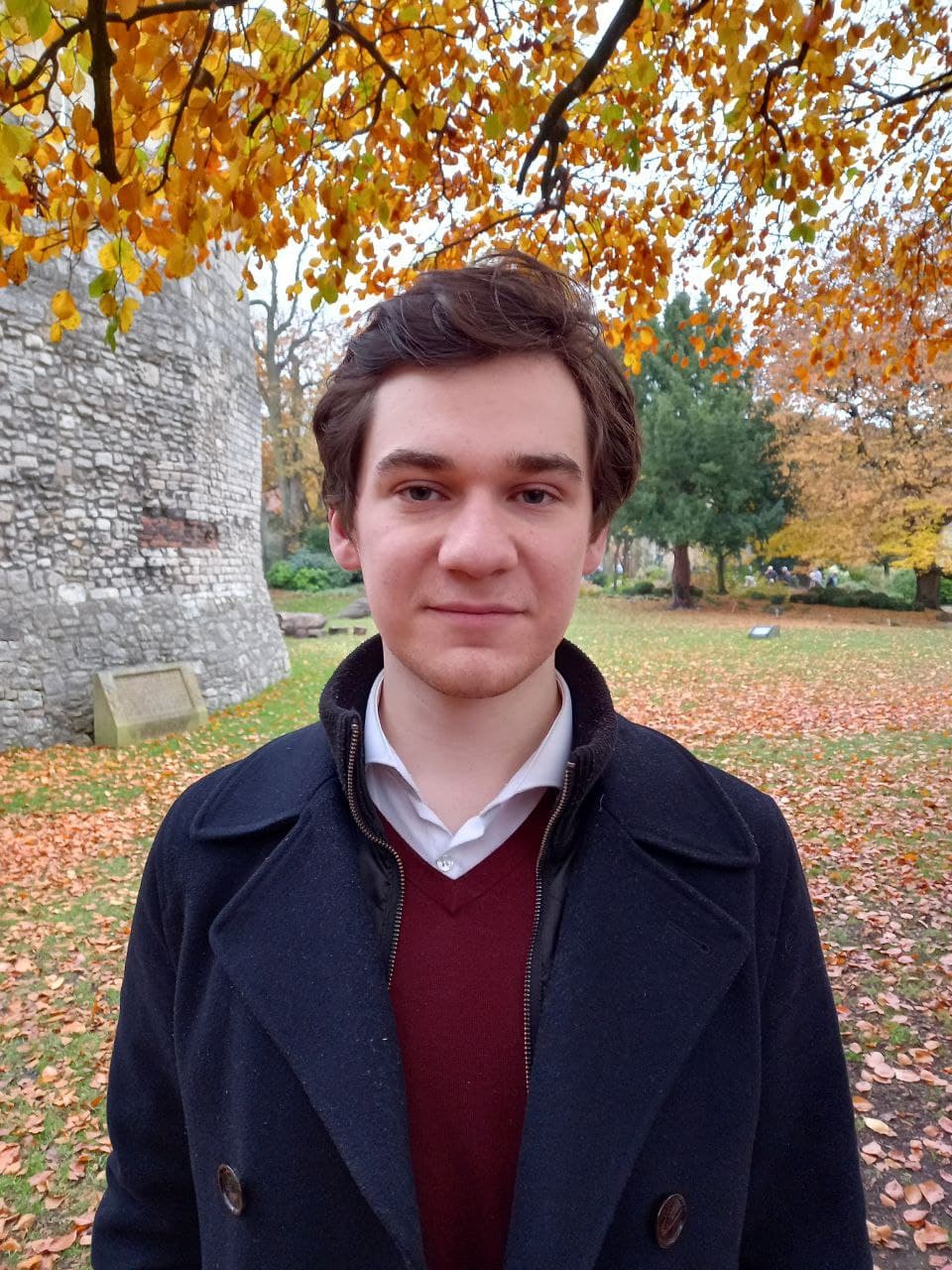


Exploring the social mobility and influence of women in Roman public life from the 1st to the 3rd centuries A.D.
Melissa Kays, Archaeology
Melissa Kays is a first year PhD student seeking to explore the unique regional circumstances which allowed Roman women in Italy, North Africa, and Asia Minor to increase their social power within their communities in the Roman Empire from the 1st to 3rd centuries AD. Following the completion of her master’s dissertation with a similar focus, Melissa seeks to expand on her conclusions through the addition of over a hundred case studies.
Focusing on specific case studies in these regions distant from, but politically and socially tied to, the empire’s capital in Rome allows for a comparison of the situations which created the most independent women, while also highlighting the more oppressive forces at hand to limit women’s participation in public life. Independence here can mean a variety of things, but this research focuses on women’s access to the funds, power, and influence needed to commission public buildings as part of the Roman system of euergetism, which normally was a male-dominated forum for competition and honour.
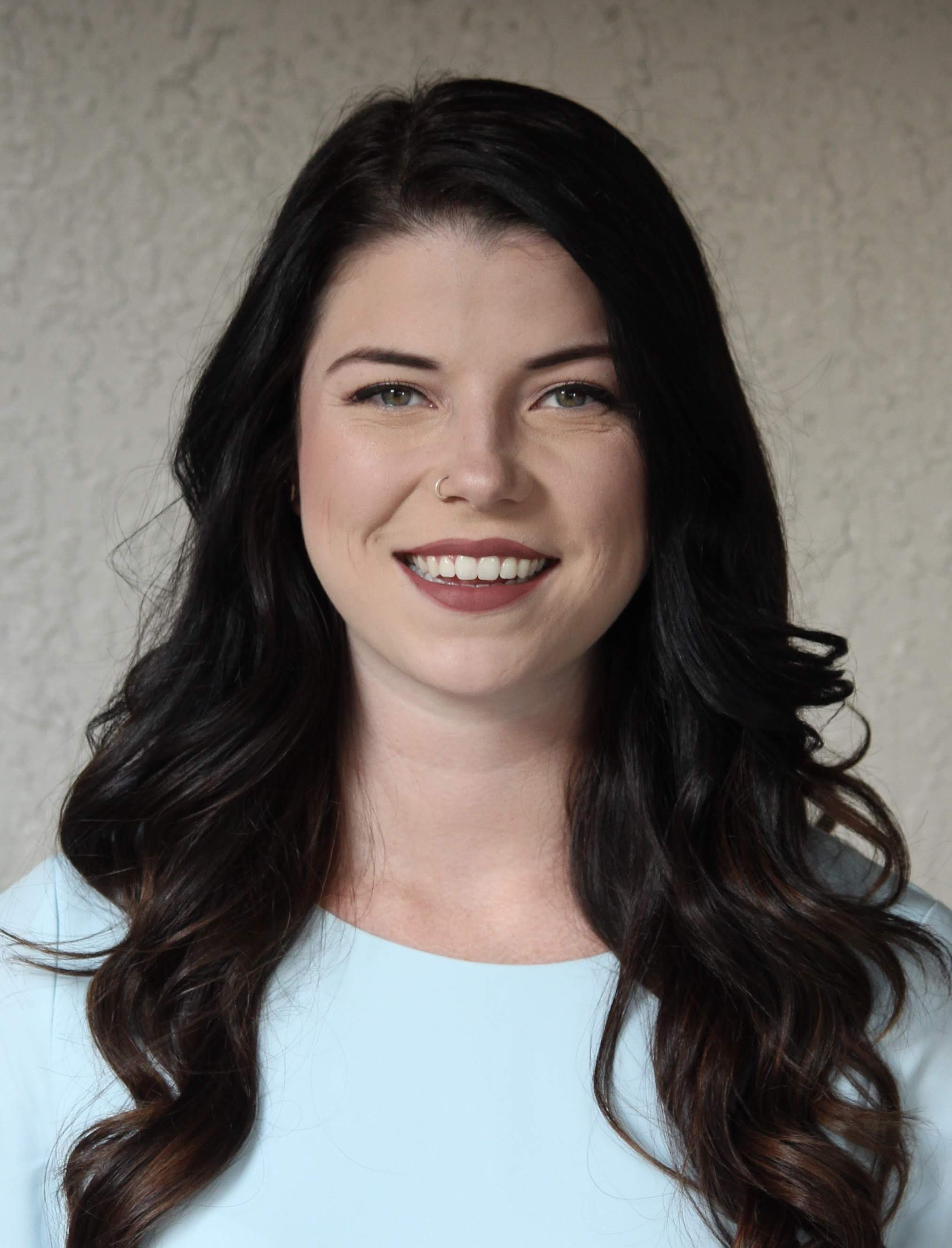
"A Girl Resembles A Bunny" - A feminist re-analysis of representations of women in Playboy
Daisy McManaman, Centre for Women's Studies
Daisy McManaman (she/her, b.1993, York, UK) is an interdisciplinary artist and researcher based in Glasgow, Scotland. She holds a BA (hons) in Fine Art Photography from the Glasgow School of Art, and an MFA in Fiber and Material Studies from the School of the Art Institute of Chicago. Daisy is a current 2nd year PhD candidate working on a project on the representation of women in Playboy Magazine at University of York’s Centre for Women’s Studies, her supervisor is Dr Rachel Alsop.
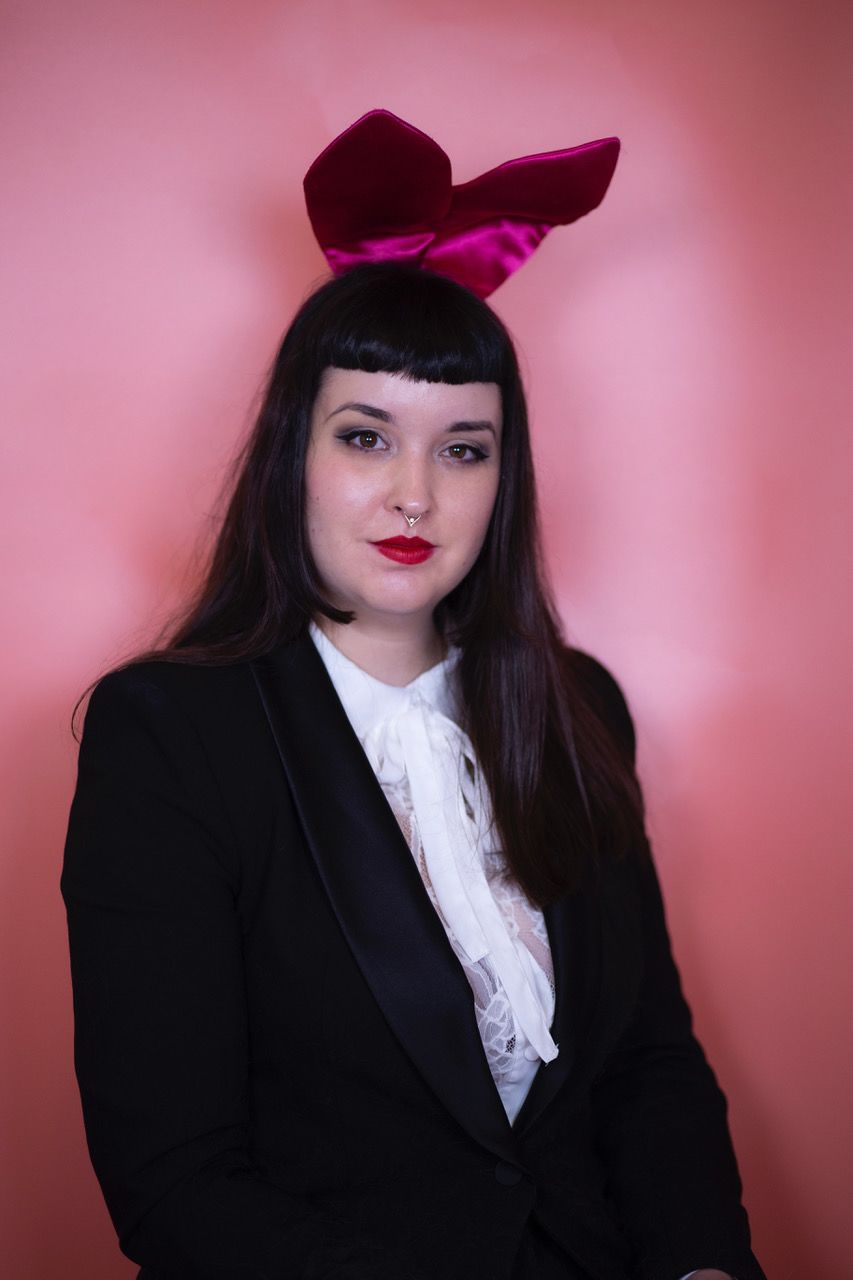


The Representation of Disability in Disney Animated Films: Using Models of Disability as Pedagogical Tools for Analysis
Jess Gibson, Education
Jess Gibson is a third year PhD student in the Department of Education at the University of York. Her research examines the representation of disability in Disney animated films through the lens of disability studies. Through the use of a content analysis and additional film analysis, Jess explores the myriad ways in which impairment and disability is depicted in Disney. Her research interests more broadly include Disney, popular culture, theme parks, disability studies, social justice and education.
She has written several academic blog posts on disability in film including the use of facial disfigurement in James Bond villains for The Conversation and the representation of autism in Pixar’s short film Loop for Fantasy/Animation. She has also presented at several conferences including the Northeast Popular Culture Association, UBC’s Graduate Student Children’s and YA Literature and Culture Conference and Two Decades of Shrek: An Academic Symposium. Throughout her PhD she has worked as a caption editing assistant and a research assistant on two projects at the University of York and is working on a chapter about disability in Dumbo for an upcoming edited collection on Animal Heroes.
